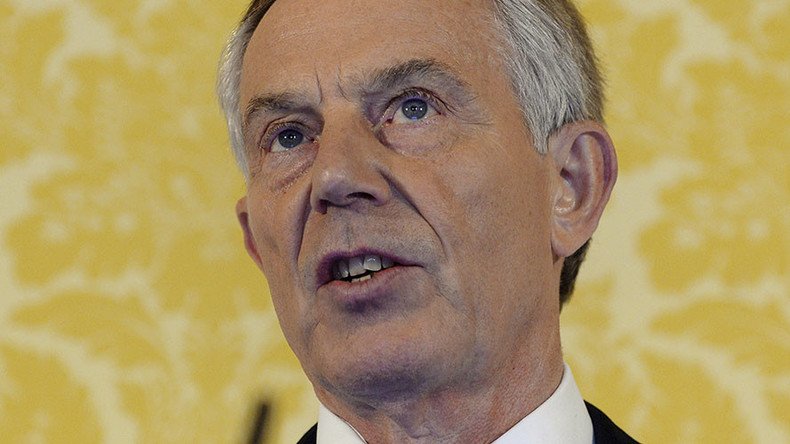Get Tony! People are obsessing over how to punish Blair for Iraq

Critics of ex-PM Tony Blair are lining up to offer ways to punish him for taking the UK into the Iraq War, after Sir John Chilcot released his damning report on the conflict last week.
Some want to see him barred from public office forever, while others want to focus on the conduct of the occupation to see if there is a route to prosecution based on the West’s massive social engineering in the country.
Deceit?
A cross party alliance of MPs seems set to push for a motion which, if accepted by the Speaker of the House of Commons, could see Blair stripped of his role on Britain’s Privy Council and barred from public office forever.
The parliamentary motion would see the former PM accused of “deceit” for leading – or misleading – the country into war in 2003 at a cost of potentially hundreds of thousands of lives.
Outspoken Tory MP David Davis is leading the charge to exercise the parliamentary device. He has urged MPs to look at the weight of evidence against Blair and back his plan.
Labour leader Jeremy Corbyn – a stalwart opponent of Blair – told the BBC on Saturday he would probably back such a move.
“Parliament must hold to account, including Tony Blair, those who took us into this particular war. That is surely how a parliamentary democracy works. I haven’t seen [the motion] yet, but I think I probably would [back it],” he said.
Occupation
Others have claimed the conduct of the post-2003 occupation and the almost total restructuring of Iraqi society along neoliberal lines could also give rise to charges.
Writing in the Guardian on Monday, energy journalist Greg Muttitt and legal academic David Whyte argued: “Under the Hague and Geneva rules, occupying powers are prohibited from fundamentally transforming the economy and political system of a country. Yet this is exactly what happened.”
They argue that the neo-colonial government imposed on Iraq by the US and UK – known as the coalition provisional authority (CPA) – effectively forced through "a series of major structural economic reforms.”
These included “the removal of product subsidies and protective trade barriers and other tariffs, a flattened tax system in which the richest and the poorest paid the same rate, and economic policies that threw Iraqi industry wide open to foreign investors.”
Questionable lawfulness
The re-engineering of Iraq was also political, the authors claim, and involved “reforming the political system root and branch, creating a government structure based on sectarian identity, which arguably played a key role in stimulating the violence that continues to this day.”
They argue that even British officials recognized at the time that this was a legally dubious project.
They quote one Foreign and Commonwealth Office (FCO) lawyer as telling Blair in 2004: “The extensive body of CPA legislation dealing with economic reform and governance was of questionable lawfulness … the risk of claims against the UK could not be ruled out.”
Moreover, the restructuring of Iraq’s oil industry to benefit UK firms may leave the UK and Blair open to charges.
“The question that now must be contemplated is whether the war crimes we have described under the CPA constitute ‘pillage’ – and whether, in the terms of the Rome statute, they constitute grave breaches,” the authors argue.












